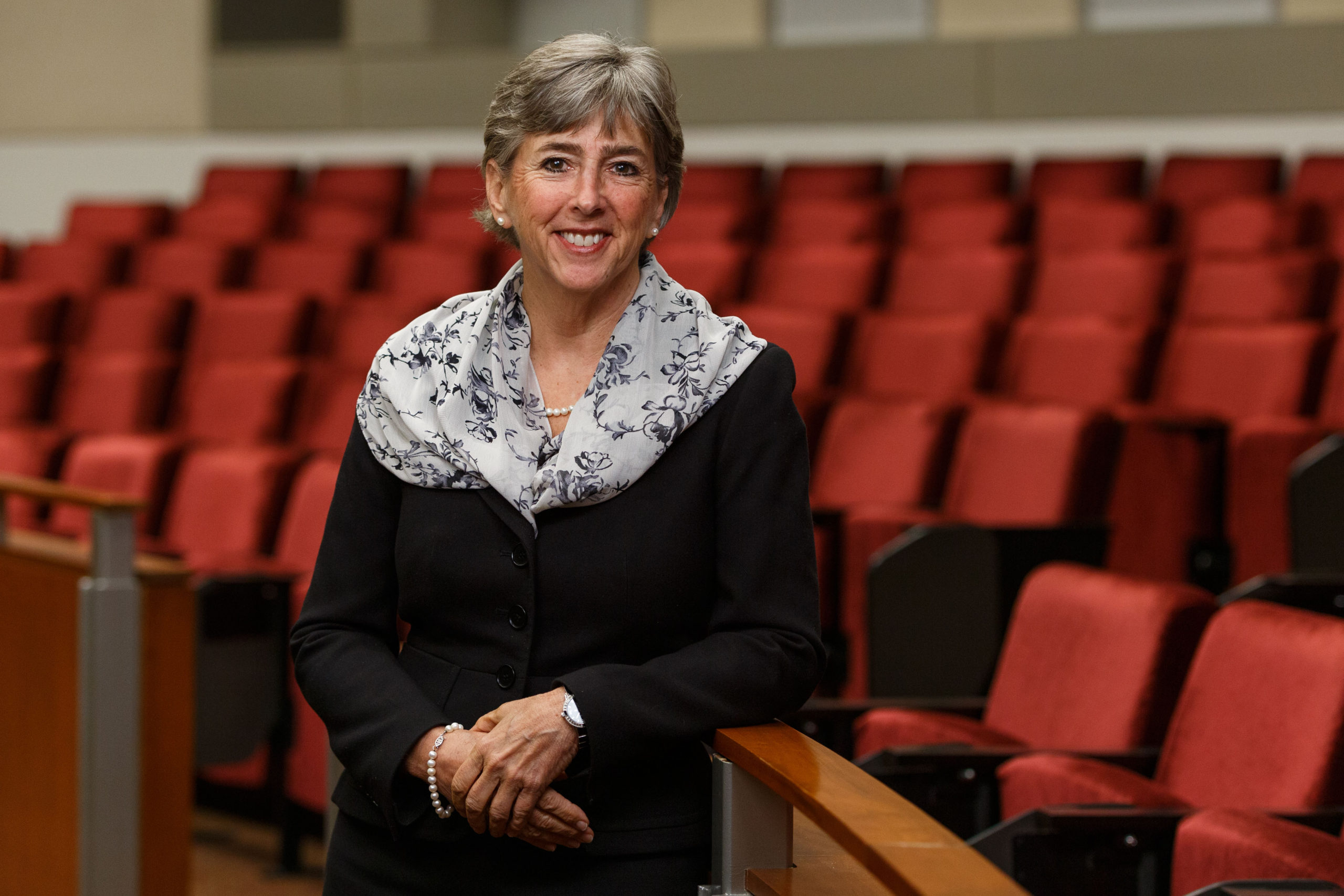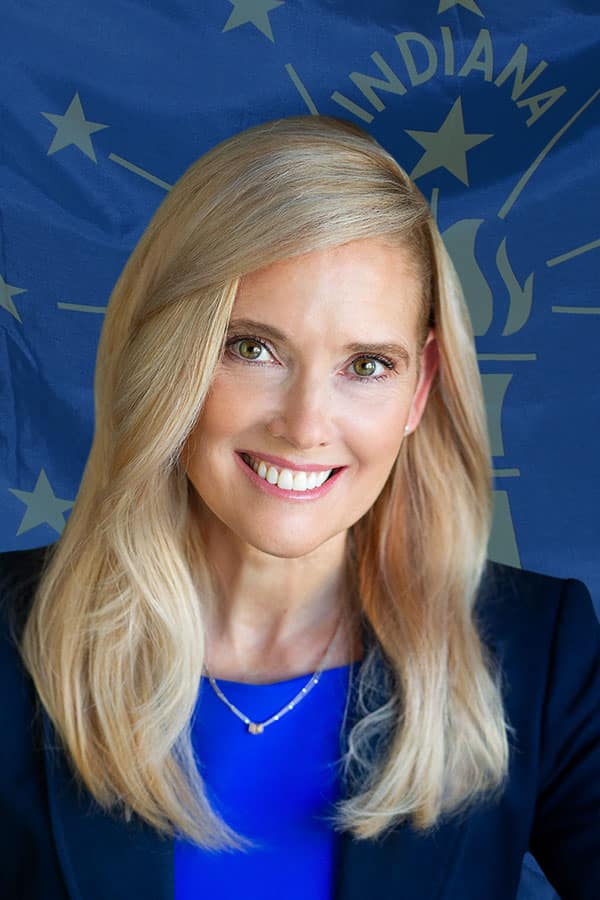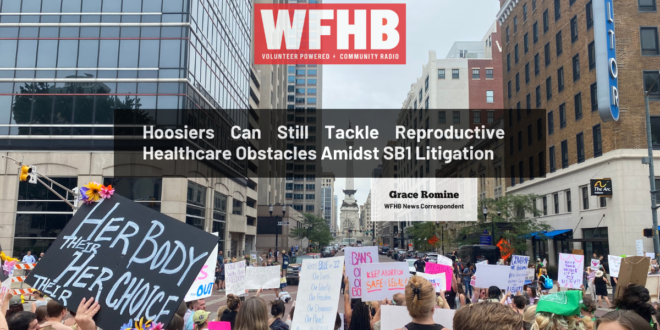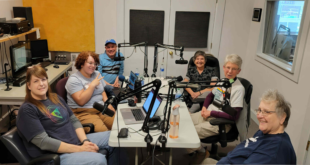Podcast: Play in new window | Download (Duration: 9:50 — 13.6MB)
Subscribe: RSS
Reproductive health care resources are still available in the right places for Hoosiers in need, despite the current instability as Indiana Legislature became the first in the nation to pass an abortion ban responsive to the Supreme Court decision to overturn Roe v Wade this past June.
Symone Bailey, an 18 year old first year student at community college in a secret relationship which had grown unhealthy, struggled to afford a $15 pregnancy test. When she turned the test stick over, and the small digital screen read “pregnant” she was immediately struck with fear.

Bailey knew she did not have the resources to carry through with the pregnancy, nor did she want to carry the child of her covert partner.
While the process to abortion was lengthy and traumatic, she wouldn’t have had access to the procedure if it weren’t for the landmark Supreme Court Decision – Roe v Wade – which protected the right to an Abortion for Americans.
Bailey shared her story with the Indy Star after Roe v Wade was overturned June 24, 2022.
Roe v Wade was a landmark Supreme Court Decision in 1973, recognizing that the decision whether to continue or end a pregnancy belongs to the individual, and also served as a legal precedent recognizing the right to privacy protected in the 14th amendment.
In response to the Supreme Court decision to overturn Roe v Wade, Indiana became the first state legislature to pass an abortion ban in the United States – Senate Bill 1.
Owen County Judge Kelsey Hanlon issued a preliminary injunction against the ban, regaining temporary access to abortion in the state as Indiana courts mitigate two lawsuits filed against them by the American Civil Liberties Union (ACLU) Indiana.
Jennifer Ann Drobac is a law professor at Indiana University, specializing in family, juvenile, and sexual harassment law. She explains the arguments the ACLU is taking in their two lawsuits.
“You have a right to bodily autonomy,” said Drobac, “and SB one ignores that.”

The arguments made by the ACLU is that Senate Bill 1 is in violation of the 14th, 1st, and 9th amendments. The rejection of Roe v Wade, the passing of Senate Bill 1, and the ignorance of the constitutional amendments could impact more than just reproductive health care access.
“The majority decision in Dobbs said there is no right of privacy in the constitution to abortion, because the word abortion is not in the Constitution. Well, neither is the word, marriage, and neither is any discussion of having children,” said Drobac.
State Senator Shelli Yoder represents all citizens of Indiana’s 40th District, encompassing the majority of Monroe County and the Indiana University Bloomington campus. The Assistant Minority Leader was in the state building during the passing of Senate Bill 1, she spoke with WFHB about her experience in the Indiana Congress.
“For many Hoosiers, it was traumatic and to see the hundreds, day after day to turn out in opposition of Senate Bill one, and to have the courage to stand up and share the most intimate details and parts of someone’s personal life and story in front of people who may or may not care, took such courage. It was humbling,” said Yoder.

For Senator Yoder, the heartbreak wasn’t only the day of the bills passing on July 30th, it was for all Indiana women and Hoosiers capable of pregnancy from that day forward.
“At the end of the day, the person who should be deciding is the woman and her health care provider, and those are very difficult, painful, complicated conversations to have,” said Yoder.
While litigation of the ACLU lawsuits are still moving through the courts, Hoosiers still have access to reproductive health care. Local governments in the area are providing ways to make that access less challenging for those in need.
Thursday October 27th, the city of Bloomington announced it will release $200,000 in emergency reproductive health care grants in response to the legal action at the state.
Beverly Calender-Anderson, the director of Community and Family Resources for the city of Bloomington explains how the city is doing its best to provide where they can, and while the grant money doesn’t pay for abortions directly, it can cover a wide range of cost factors such as educational literature, transportation, and post-op exams.
$100,000 in grants have been allotted for the current fiscal year, and $100,000 for the next. For more information contact Beverly Calender-Anderson at [email protected].
The Bloomington Planned Parenthood Office is located at 421 S College Avenue, and can be contacted at (317) 205 8088.
Hoosiers, make sure to get out and vote and educate yourself and others. In the words of Professor Jennifer Ann Drobac:
“Roll up your sleeves, get busy,” said Drobac.
 WFHB Bloomington Community Radio
WFHB Bloomington Community Radio


